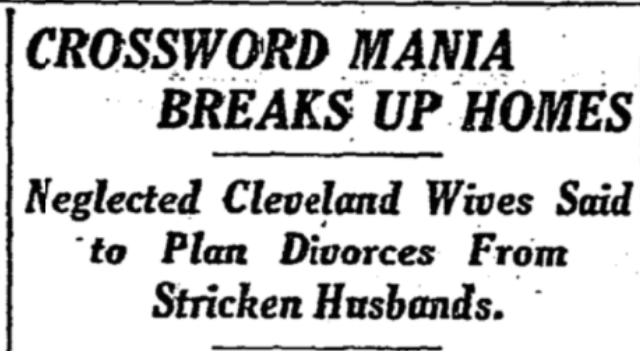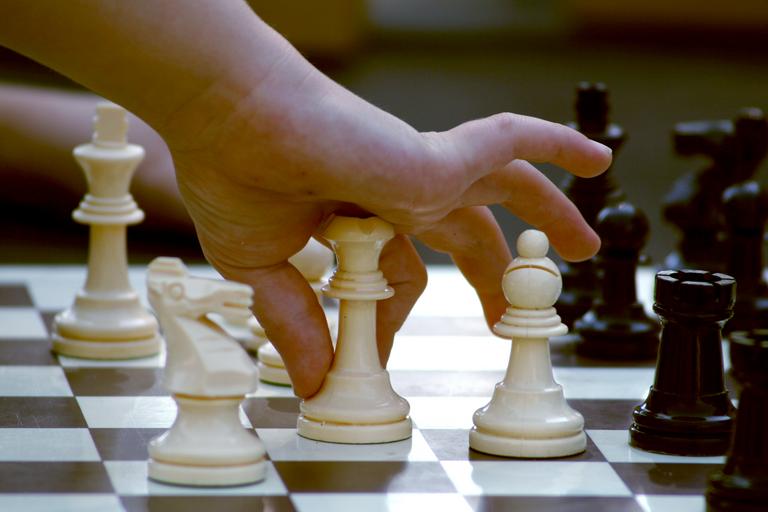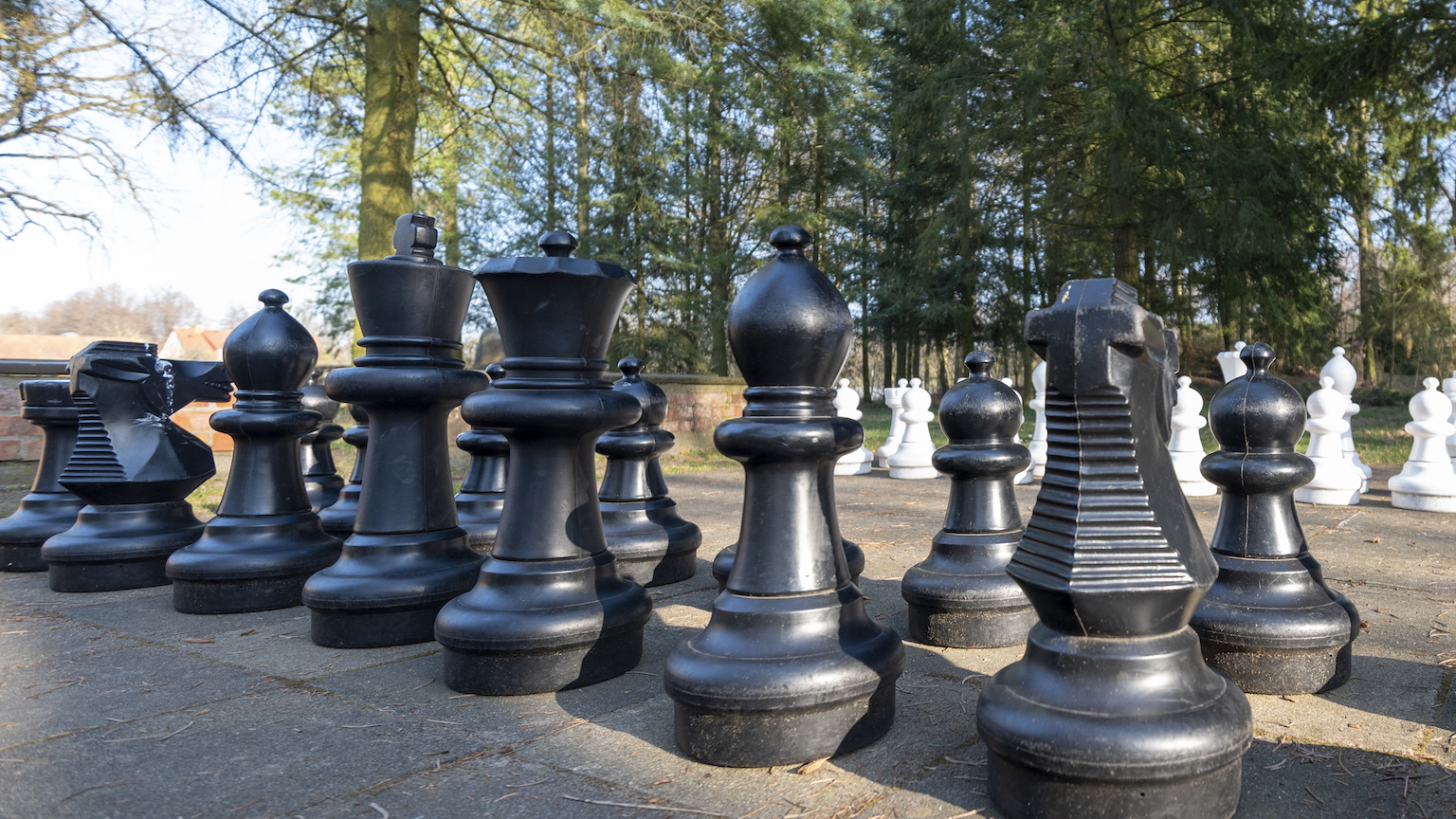Chess was once blamed for causing insanity, suicide, and even murder

- Many years ago, chess was thought a triviality at best and a pathway to insanity at worst.
- Several media outlets made claims like this, perhaps most notably, Scientific American.
- In reality, chess does not cause mental health problems, but the game does have a special appeal to people with autism.
Chess is perhaps universally considered an intellectual pastime, one that combines the virtues of a balanced mind: focus, patience, and thoughtfulness. But that wasn’t always the case. Many years ago, chess was thought a triviality at best and a pathway to insanity at worst.
A resurgence of interest in chess
Recent years have seen a renewed interest in the game, thanks in part to the pandemic but also to the hit Netflix series The Queen’s Gambit. Past champions like Garry Kasparov remain influential public intellectuals, and current champions inspire equal reverence, such as Magnus Carlsen, the Millennial chess champion of the world. Gen-Z has its own chess idol too, in the form of Alexandra Botez, a social media influencer and former U.S. and Canadian girl’s chess champion.
Where most Twitch streamers spend hours playing Call of Duty or Fortnite, Botez streams her chess games. Like a vegan fast food joint, it is seen as a subversive respite from destructive chaotic modernity. In the minds of many, new (and often violent) video games are considered mentally destructive. However, once upon a time, hours spent playing chess were considered as wasteful and mindless as a Fortnite binge is today.
The chess panic
A century and a half ago, another young chess prodigy would also cause an upsurge of interest in chess among the younger generation. His name was Paul Morphy, and in 1858 — after numerous chess victories in Europe — was widely considered the best player in the world at just 21 years of age. In Paris, a bust of Morphy would be unveiled and a wreath placed around its neck. In London, Morphy would be invited to a private audience with Queen Victoria. And in America, Morphy’s home country, he was hailed a hero who kicked off a new national trend in chess playing.

The resulting “mania” drew scorn — not just from members of the public but the scientific community, too. In response to a letter from a concerned housewife, one newspaper editor said the new chess craze was “exactly like an epidemic,” and regardless of any virtues, was “too engrossing, monopolizes too much intellect for mere recreation, and is not profitable.” (Incidentally, this echoes many of the same sentiments that the media had about crossword puzzles.) He proclaimed that “for young men to become insane on the subject, and believe they are going to be a Paul Morphy, is one of the absurd, as well as sad, effects of the chess panic.” He suggested she and other women should take up the game and neglect housework to give men a taste of their own medicine.

Beyond the inevitable pedestrian complaints about the new trend, more prestigious and respected voices made similar arguments, namely Scientific American. In a piece titled “Chess-Playing Excitement,” the publication observed that thanks to Morphy’s triumph, “Chess has acquired a high reputation as being a means to discipline the mind” and a sign of “superior intellect” — notions few would argue with today. But Scientific American stated that those assumptions were “exceedingly erroneous” and “buncombe.” Napoleon the Great, it said, was regularly beaten by a “rough grocer.”

A quote from the article:
“Chess has acquired a high reputation as being a means to discipline the mind, because it requires a strong memory and peculiar powers of combination. It is also generally believed that skill in playing it affords evidence of a superior intellect. These opinions, we believe, are exceedingly erroneous. Napoleon the Great, who had a great passion for playing chess, was often beaten by a rough grocer in St. Helena. Neither Shakespeare, Milton, Newton, nor any of the great ones of the earth, acquired proficiency in chess-playing. Those who have become the most renowned players seem to have been endowed with a peculiar intuitive faculty for making the right moves, while at the same time they seem to have possessed very ordinary faculties for other purposes.”
Chess causes insanity
Even Paul Morphy considered the game an amateur, unserious pastime, saying that “it is at best a relaxation from more serious pursuits.” This helps explain why, the very next year, Morphy gave up competitive chess. After joining the army and then setting up a failed law practice, his mental health would decline rapidly, leading to his mother trying to admit him to a Catholic sanitarium, but he convinced officials that he was of sound mind. Word of his mental health problems would eventually reach the pages of the newspapers that once championed him. Notably, he was never officially declared insane.

But that didn’t matter. Some assumed his avid chess playing led to his demise, especially his famous blindfolded chess games. The following decades would witness other grandmasters follow a similar path, leading to some wondering again if chess could be a contributing factor to mental decline.
Paul Morphy continued to be considered the best player in the world until 1873, when Austrian Wilhelm Steinitz was officially awarded the title at the Vienna Chess Tournament. Steinitz’s mental health would decline in the following years too, when after losing a match in 1896, he claimed to have played chess against God. The following year, he would be admitted to an insane asylum in Moscow. In 1899, the second leading chess player in Russia, Emanuel Schiffers, met a similar fate. The year after that, Steinitz died in an asylum.

The 20th century brought more of the same, as American hero Harry Nelson Pillsbury, mad with the syphilis that would kill him a year later, jumped from the fourth floor of his hospital in 1905. This would see “age-old” questions raised again about the effects of chess on the mind.

The chess suicides and murders
Nineteen years after Pilsbury’s failed attempt, the German master Curt von Bardeleben committed suicide jumping from his window. Similar fates awaited Armenian and Soviet international masters Karen Grigoryan and Georgy Ilivitsky in 1989; Latvian master Alvis Vitolins in 1997; and Estonian grandmaster Lembit Oll in 1999. All threw themselves to their deaths.
The violence, tragically, was turned outward too. American master and Bobby Fischer schoolmate Raymond Weinstein killed an 83 year-old in a halfway house in 1964. Weinstein remains in a psychiatric hospital to this day. He was considered chess’s most notorious murderer, until the once outstanding youth player Alexander Pichushkin — a.k.a., the Chessboard Killer — was jailed in 2007 for the murder of 49 people.
Chess: a history of troubled minds
Chess is a game whose best players often have more analytic minds and are avid systems thinkers, a common trait of those on the autism spectrum. Paul Morphy would die surrounded by the women’s shoes he avidly collected and neatly arranged. The unique brains of many such grandmasters have been plagued throughout history, with numerous trips to the asylum, psychiatric diagnoses, and multiple homicides and suicides.
History is littered with troubled chess champions that met sad and untimely ends. Each time, the press would wonder if it was chess that had caused their demise, seeing correlation and assuming causation. Over time, this pattern was thought proof of the deleterious effects of the game on the mind.
The truth is, chess has unique appeal to people with autism, with its rational order and predictability and no need for the kind of “bluffing” or emotional intelligence required to be successful in a game like poker. Those on the spectrum are also much more likely to suffer from depression and anxiety.
Today, chess is no longer blamed for mental health problems, even when notable players make headlines because of it. Yet, when it comes to more modern games — like the ones you can find on Twitch, alongside Alexandra Botez playing chess — similar questions are being asked, with headlines such as “Mental health issues remain pervasive problem in esports scene.” It seems we learn little from history.





